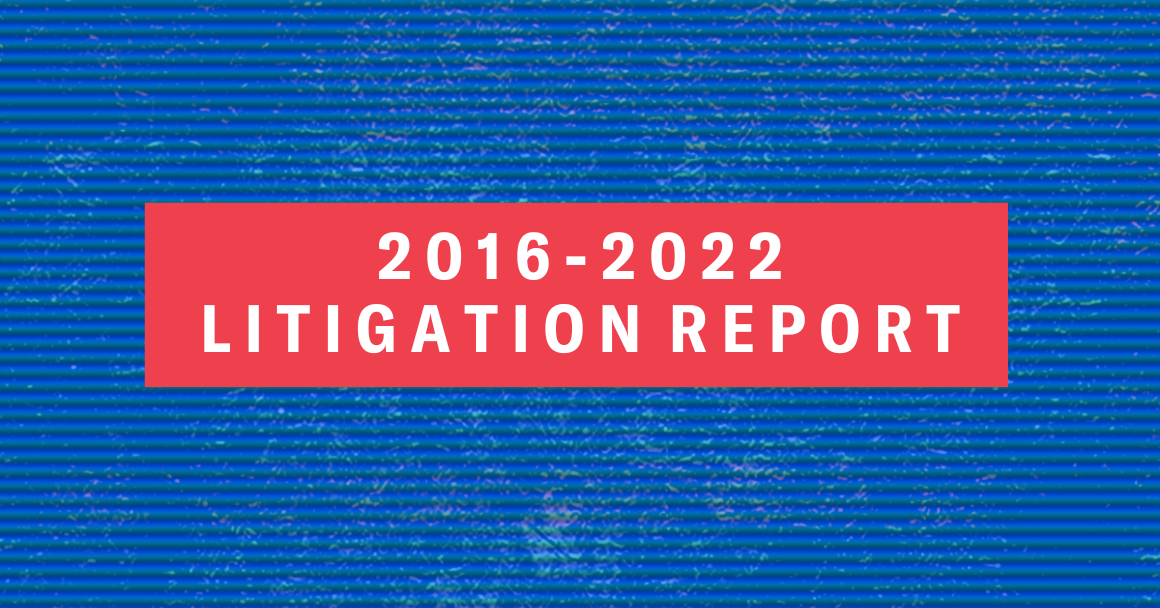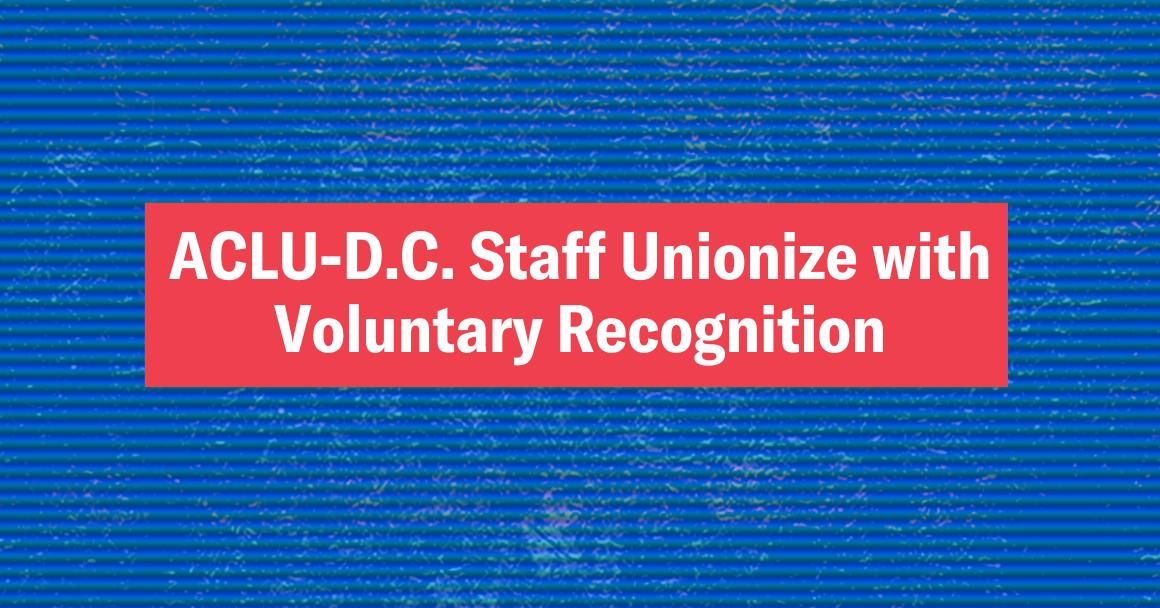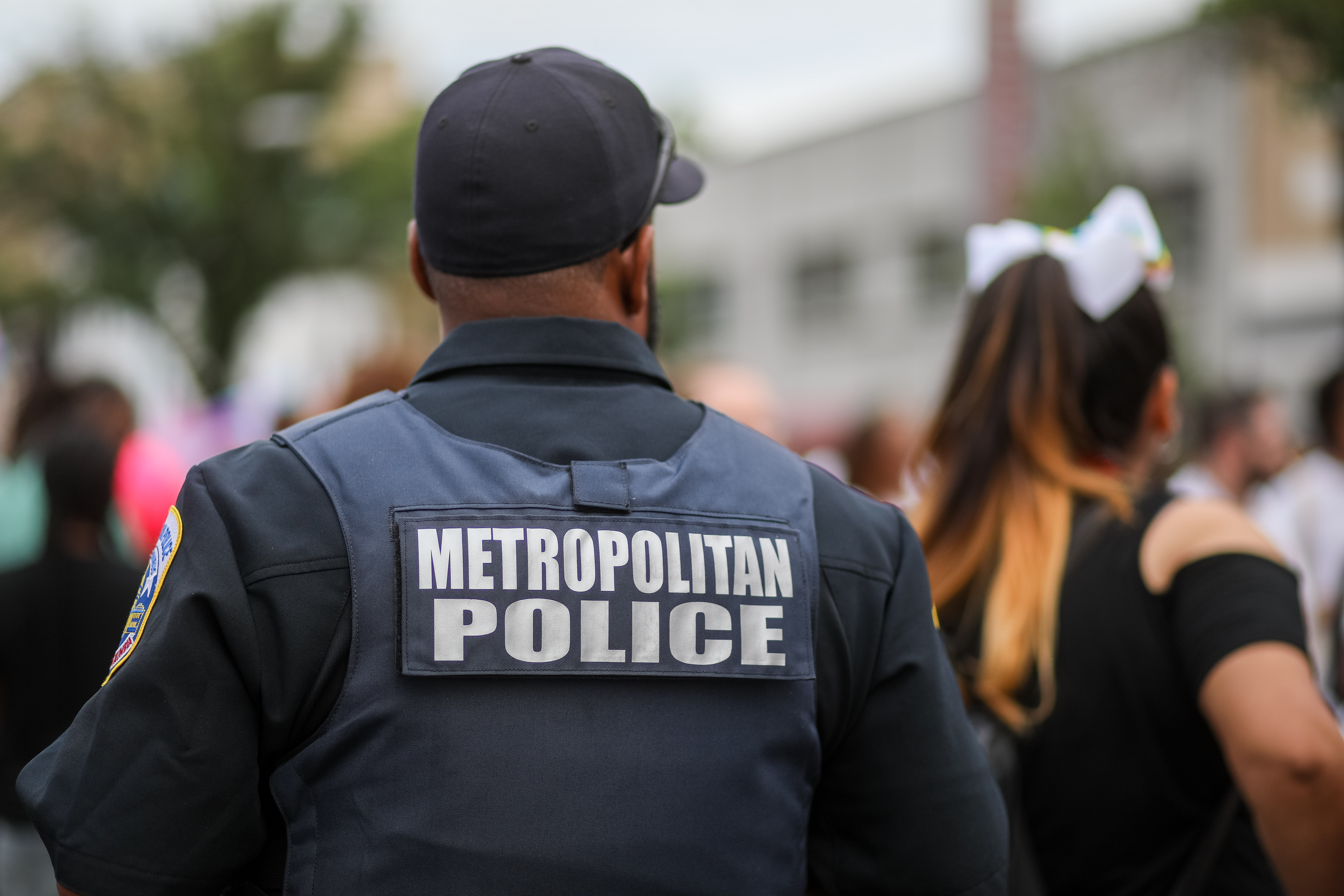The ACLU of the District of Columbia works to defend and advance the civil liberties and civil rights of those who live in, work in, or visit D.C., and in matters involving federal agency action. We fight for civil rights and liberties through legislative advocacy, organizing, public education, and litigation. This report documents the litigation component of our work from 2016 to 2022.
We litigate in the federal courts and in the local courts, at every level: from D.C. Superior Court to the Supreme Court of the United States. We take all our cases on a pro bono basis, receiving compensation only when the law permits us to obtain attorneys’ fees from our opponents.
The litigation program of the ACLU of the District of Columbia is carried out by the ACLU Fund (or Foundation) of the District of Columbia, a separate non-profit corporation qualified to receive taxdeductible contributions under section 501(c)(3) of the Internal Revenue Code. Prior to 2017, the ACLU of the District of Columbia and its Fund/Foundation were known as the ACLU of the Nation’s Capital and the ACLU Fund of the Nation’s Capital, respectively. (Cases in the period covered by this report that were handled prior to the name change are included.)
Cases come to the ACLU-D.C. through direct outreach from community members who feel that their rights have been violated; through other lawyers or referrals from other organizations; and through proactive investigations and research by our legal team. Depending on the nature of the case, our representation maybe approved either by the Executive Director and Legal Director jointly, or by our Board of Directors.
As this report reflects, many of our cases are handled by ACLU-D.C. staff alone, but many more are handled in partnership with pro bono co-counsel who are not employed by the ACLU-D.C. These lawyers receive no pay from either the ACLU-DC or our clients. Instead, they donate their valuable time because they understand the importance of protecting civil liberties. Without their help we couldn’t begin to handle a caseload of this size or significance.
The ACLU-D.C. likewise could not function without the support of our members and donors. If you’re not yet a member, please join. The basic membership fee is still only $35—a small price to pay, we think, for a vigorous defense of our constitutional and civil rights here in the District of Columbia.
ABOUT THIS REPORT
The ACLU-D.C. used to publish a yearly litigation report, the last one covering 2014-15. That report was useful as a snapshot in time, but many of the cases covered in any given report were necessarily left as cliffhangers, given the volume of cases our office has pending at any given time and the amount of time—often years—that cases take to litigate cases to completion. Covering a longer period, as this report does,will enable us to describe many cases from start to finish and give a more comprehensive sense of what our litigation has achieved over the medium to long term. The cost to this approach is that these more comprehensive reports will necessarily be long and appear less frequently. Fortunately, between reports, it is now easier than ever to get a snapshot of our current work because of our upgraded website, which is kept up to date and on which cases can be filtered by year filed, by status (such as “Open”), by subject matter, and more. Accordingly, we are moving to this periodic, rather than annual, report format.
Date
Wednesday, May 17, 2023 - 6:30amFeatured image


